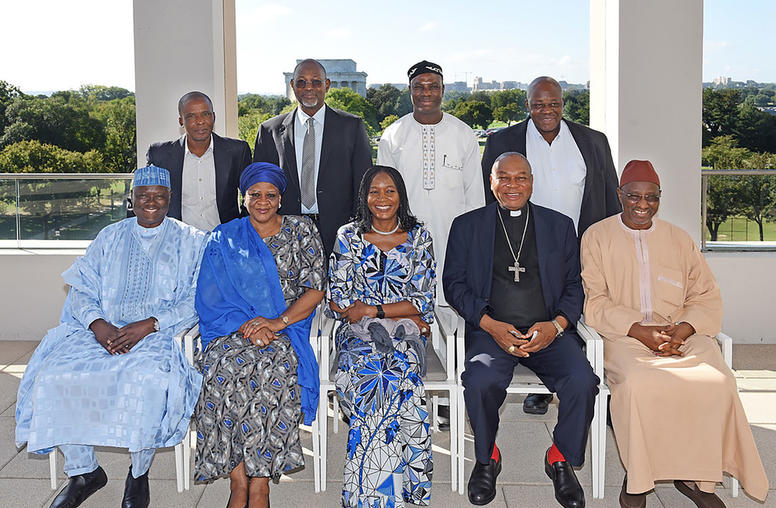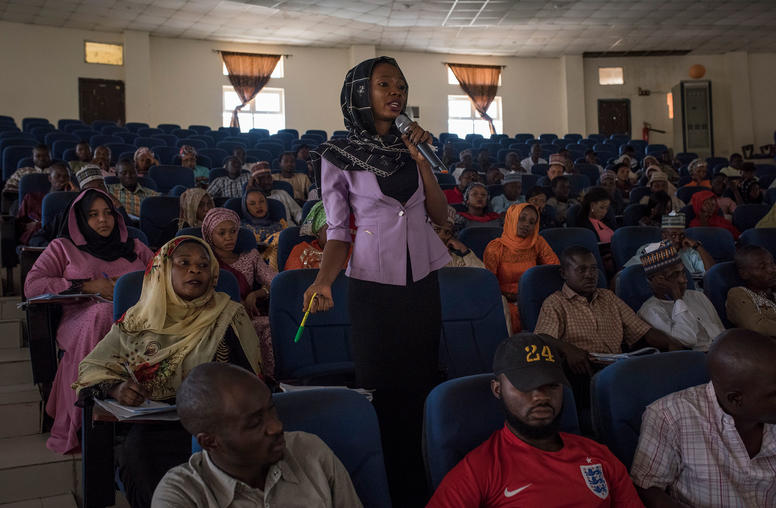 Global Elections & Conflict
Global Elections & Conflict
Increasingly aware of the risk of strife presented by elections in countries affected by conflict, governments and civil society need more effective approaches to prevent election-related violence. The U.S. Institute of Peace conducts research, training and fieldwork to develop evidence that will improve knowledge in this field and inform initiatives such as codes of conduct developed by police and elections officials to avert violence. USIP’s Academy also conducts extensive training and education on election violence prevention in Africa.
Featured Publications

Cómo Puede Contribuir EE.UU. a la Resolución del Conflicto en Venezuela
El reciente anuncio de negociaciones directas entre Venezuela y Estados Unidos fue recibido con agrado por muchos venezolanos como una oportunidad para aumentar las posibilidades de que las elecciones del 28 de julio se desarrollen pacíficamente y conduzcan a un futuro de coexistencia democrática. Sin embargo, la clave de este resultado dependerá menos de las cuestiones tácticas electorales —como los incentivos para no anular la candidatura de la oposición— y más de la cuestión más amplia de asegurar que no habrá persecución del perdedor y que ambas partes puedan volver a la alternancia del poder en lugar de un régimen de partido único. EE.UU. está en una posición clave tanto para influir en el ambiente general de las elecciones como para tomar acciones específicas que faciliten un resultado democrático, que se desarrollará a lo largo de un período post-electoral extendido.

How the U.S. Can Contribute to Resolving the Venezuelan Conflict
The recent announcement of direct negotiations between Venezuela and the United States was welcomed by many Venezuelans as an opportunity to bolster the chances of the July 28 election playing out peacefully and leading to a future of democratic co-existence. The key to this outcome, however, will hinge less on the tactical electoral questions — such as incentives for not annulling the opposition’s electoral ticket — and more on the larger question of ensuring there will be no persecution of the loser and that the two sides can return to the alternation of power rather than single party rule. The U.S. is in key a position to both influence the general ambiance of the election and to take specific actions that will facilitate a democratic outcome, which will play out over an extended post-electoral period.

What You Need to Know About Iran’s Election and New President
In a clear challenge to regime hardliners, Masoud Pezeshkian, a reformist and cardiac surgeon, won Iran’s snap presidential election on July 5. The elections were called after President Ebrahim Raisi died in a helicopter crash on May 19. The runoff had been considered a tight race, but Pezeshkian won decisively with almost three million more votes than Saeed Jalili, a hardliner and former nuclear negotiator. Due to take office in August, Pezeshkian, a former deputy speaker of parliament and health minister, will take power as Iran’s government faces legitimacy challenges amid an economic crisis.
Current Projects

Nigeria Working Group on Peacebuilding and Governance
The Nigeria Working Group on Peacebuilding and Governance is a joint initiative between USIP and senior leaders from Nigerian civil society to promote good governance practices that strengthen the foundations of peace and security for all Nigerians. Using a cohesive, strategic approach to engage in and advocate for peace and security, the working group fosters relationships between citizens and governors, ensuring that citizens' voices impact crucial decisions.

Network of Nigerian Facilitators
The Network of Nigerian Facilitators (NNF) is a group of professional peace mediators trained and advised by USIP to mitigate and resolve local conflicts through nonviolent means in Nigeria. Since 2018, USIP has supported the NNF with the aim of preventing conflicts from escalating beyond the community level by piloting dialogue-based approaches and connecting local peacebuilders with policymakers to inform government responses to conflicts.